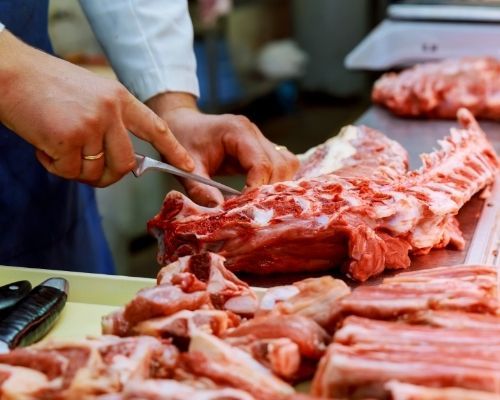The HAMBURGER Study of Beef & Breast Cancer
We know that eating red meat increases colon cancer risk, but what about breast cancer? This is a concern because cattle are given hormones, including estrogen, which is known to increase the risk of breast cancer. While this practice has been banned in Europe, it is common in U.S. feedlots to make cows gain weight more quickly. We don’t know what level of hormones ends up in the beef or how it might affect our health.
ZBC is partnering with the Public Health Institute investigator Dr. Gina Solomon and her team on a study to look at this question in the HAMBURGER (Hormones And Meat: does Beef Under-Regulation Generate Estrogenic Residues) Study. In 2020, we surveyed 41 stores to see what cuts of beef were being sold, at what price, and from which producers. (For team members who are vegetarian, this was an odd task!)
The next step is to buy certain cuts of beef in the San Francisco Bay area and the Central Valley and test them for hormones using new, sensitive laboratory methods. We will collect extra samples from Latinx and Asian food stores. The test results will be combined with data about meat eaten by subgroups of women in California to estimate their hormone consumption from beef.
Our colleagues at UC Davis also received funding from the California Breast Cancer Research Program to pursue a complementary study. Their study is intentionally dosing cows with hormones at their experimental farm. They will then test the meat from those cows to find any residue. We expect both studies to finish in early 2022.
Sign up for our ZBC newsletter and follow us on social media for updates on how beef cattle farming practices might impact our exposure to an avoidable source of hormones that contribute to our breast cancer risk.
